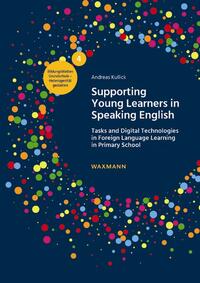
How can technology-enhanced tasks be used to support oral communication in heterogeneous English as a Foreign Language (EFL) primary classrooms? This study explores pre-service and in-service teachers’ cognitions on the use of technologyenhanced foreign Language learning tasks in the young learners’ classroom. The study investigates the aspects of technology-enhanced tasks that participants consider as having a relevant impact on the development of learners’ oral communicative competence, the criteria participants consider relevant for the design of such tasks in ways that cater for the needs of heterogeneous groups, and the support participants consider helpful in order to create and implement such tasks. Data were collected by carrying out three small-scale technology-enhanced projects in EFL primary school classrooms in the German federal state of Baden-Württemberg. The findings suggest that technology-enhanced tasks are well suited to supporting heterogeneous groups of primary school children in speaking English.